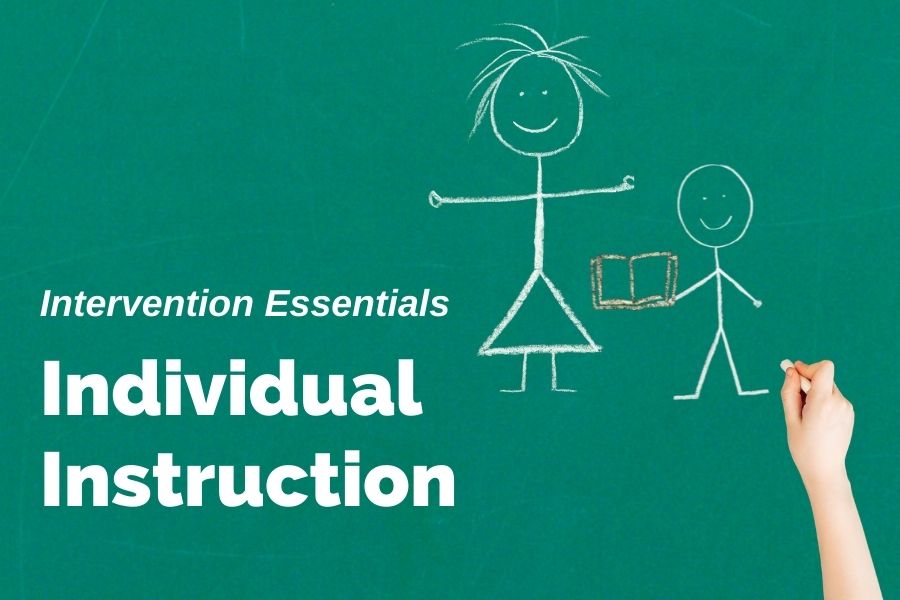BLOG
Leveraging the Teacher Leader’s Expertise as a Coach and Provider of Professional Development, Part 2
by Adria Klein and Deb Rich, Trainers, Saint Mary’s College of California
As Trainers, we collaborate in planning our classes and support ongoing professional development with Teacher Leaders and Teachers. With a combined 33 years of experience training Teacher Leaders and even more working in schools, including both our experiences as former Reading Recovery Teachers, we have thought deeply about the power of Reading Recovery as a systemic approach. As we began drafting this blog, five factors influenced our thinking: Strength of the Professional Development Model, Collective Professional Knowledge, Dexterity and Deliberateness, Communication, and Complex Theory of Literacy Processing for Older Students. We researched these areas and found many references by Clay and others that expanded our understanding. In the first blog, we addressed Strength of the Professional Development Model and Collective Professional Knowledge. In this blog, we will address the other three points.
Dexterity and Deliberateness
Another area that the i3 report identified was the relationship between dexterity and deliberate decision-making. Teachers who exhibit these qualities were encouraged to be thought partners within professional development rather than rule followers.
We find that those Reading Recovery teachers whom practitioners regard as strongest, and those whose lessons stood out to our researchers as particularly effective, demonstrate both deliberateness and instructional dexterity. In our conceptualization of instructional strength in Reading Recovery, deliberateness is understood as an encompassing commitment to thoughtful practice; instructional dexterity is defined as the flexible application of deep skill.
May, et al., 2016, p. 91
… a highly behavioral perspective like that advanced in Lemov’s (2010) work on effective teaching practices focuses on dexterity…
May, et al., 2016, p. 105
Communication
An additional point that impacted our thinking was the i3 report regarding the key role of communication among all partners within the system. When colleagues communicate within the Reading Recovery community, within the school, and within the district, and across states, the outcomes are even more powerful.
Reading Recovery, we find, offers a concrete model for community-enhanced reflective practice—one that is rich and informative from any number of perspectives: For instance, drawing on recent research by Ball, Ben-Peretz, & Cohen (2014), Reading Recovery offers an illustration of the role of “records of practice” in the cultivation of “collective professional knowledge” (2006); indeed, a more perfect instantiation of this theory is difficult to imagine.
May, et al., 2016, p. 105
In integration schools, communication was frequent, understanding was high, and commitment was unquestionable.
May, et al., 2016, p. 139
While they clearly saw the benefits of Reading Recovery for students served, classroom teachers in endorsement schools did not have much sense of how they themselves, or their other classroom students, could benefit from the expertise of the Reading Recovery teacher.
May, et al., 2016, p. 139-141
Complex Theory of Literacy Processing for Older Students: Prevention vs. Intervention
Because Reading Recovery has pioneered implementation with older students through the innovation of Literacy Lessons (even changing the title of her key text) it is essential to understand what Clay wrote about working with students beyond first grade. She asked the following essential questions:
What are the implications of a complex theory of literacy processing for the study of older readers?
Watson & Askew, 2009, p. 308
What would have to change to have all children readers and writers with average for age competencies by age nine or ten years?
For the many RR children who have a satisfactory immediate result from their series of lessons, can we describe in detail what type and variety of later outcomes are likely to follow?
Clay, 2015, p. 238
Reading Recovery … was guided initially by descriptive research of competent readers and writers who had been taught in a first programme in which text processing was the focus of instruction.… I took records of reading and writing behaviors over very short periods of time (weekly intervals) in all their variety, and divided the children after one year of instruction into high, high average, low average, and low progress groups. From the averaged test outcomes for each quartile group it was concluded that children were significantly different in their literacy learning, and that how they dealt with the errors as they read text (a processing variable) varied from child to child (Clay 1982).
Clay, 2015, p. 233
In Closing
As Trainers and members of the Reading Recovery Professional Development community along with Teacher Leaders and Teachers, we have looked at these five factors across the two blogs specifically and shared key quotes in the blogs. Again, we reiterate that the Reading Recovery Professional Development model utilizes well-prepared Teacher Leaders as district or regional coaches, based on Clay’s design for learning. What we are suggesting is that the Teacher Leader is an effective agent for systemic change across an entire district or region. Clay’s literacy processing theory is the foundation of our collective understanding; however, we must expand our thinking about the Teacher Leader as an invaluable resource for K-12 educators, including principals and district administrators, and not limit, nor think narrowly about their responsibilities. Teacher Leaders are key contributors to district literacy planning, and curriculum development and review process among many other district efforts. Systemic change occurs when we are learning and growing together.
References
Clay, M. M. (2015). Change over time in children’s literacy development. Marie Clay Trust.
May, H., Sirinides, P., Gray, A., & Goldsworthy, H. (2016). Reading Recovery: An Evaluation of the Four-Year i3 Scale-Up. Philadelphia: Consortium for Policy Research in Education.
Watson, B. & Askew, B. (2009). Boundless horizons. Heinemann.
THE JOURNAL OF READING RECOVERY
Spring 2024
Constructing a More Complex Neural Network for Working on Written Language That Learns to Extend Itself by Carol A. Lyons
Reading Recovery IS the Science(s) of Reading and the Art of Teaching by Debra Semm Rich
Predictions of Progress: Charting, Adjusting, and Shaping Individual Lessons by Janice Van Dyke and Melissa Wilde
Teachers Designing for Context: Using Integrity Principles to Design Early Literacy Support in Aotearoa New Zealand by Rebecca Jesson, Judy Aitken, and Yu Liu




